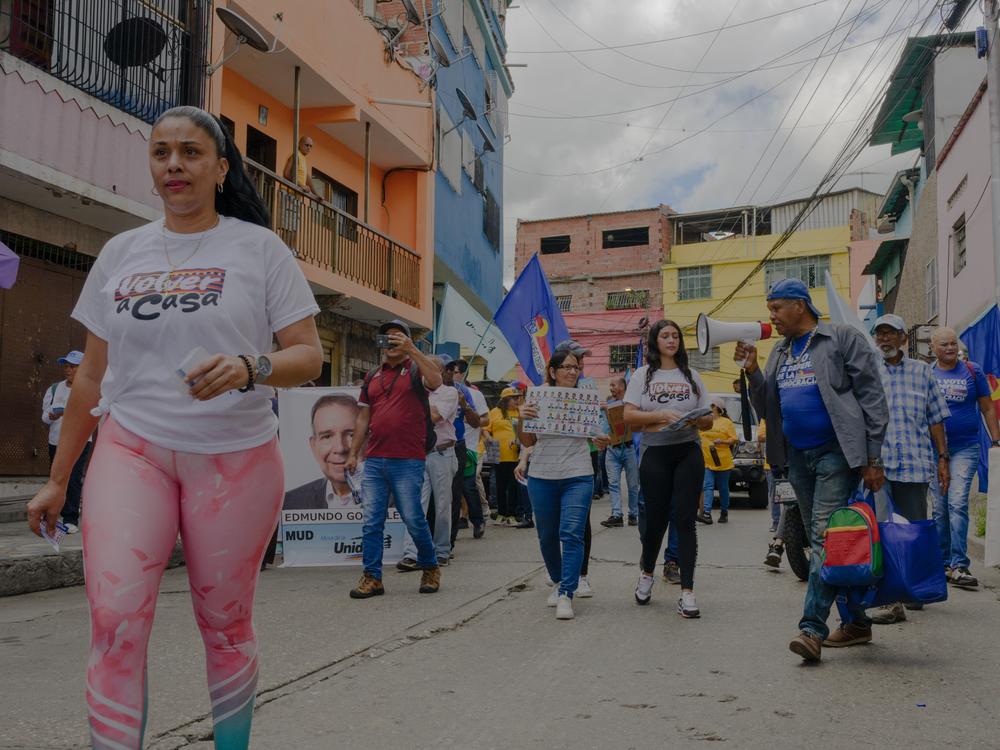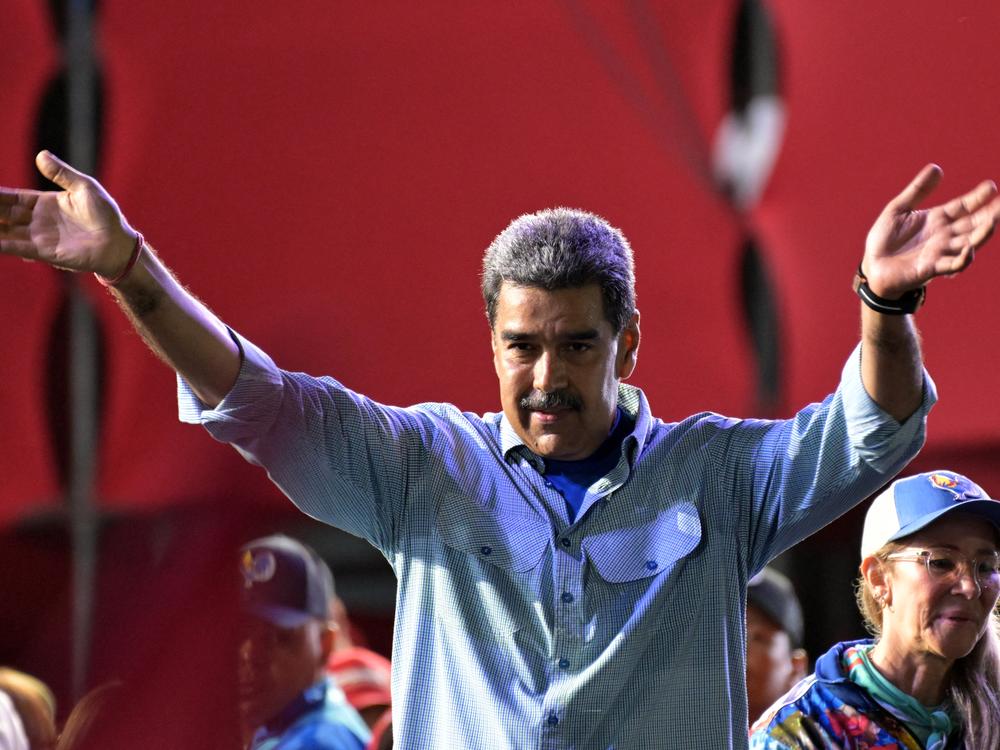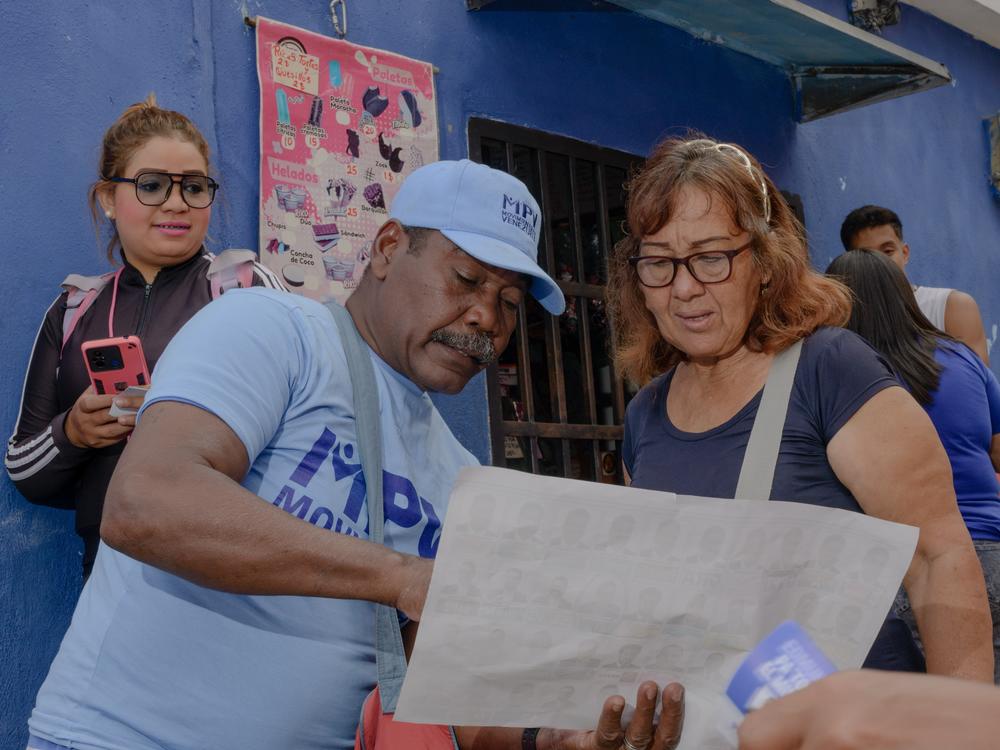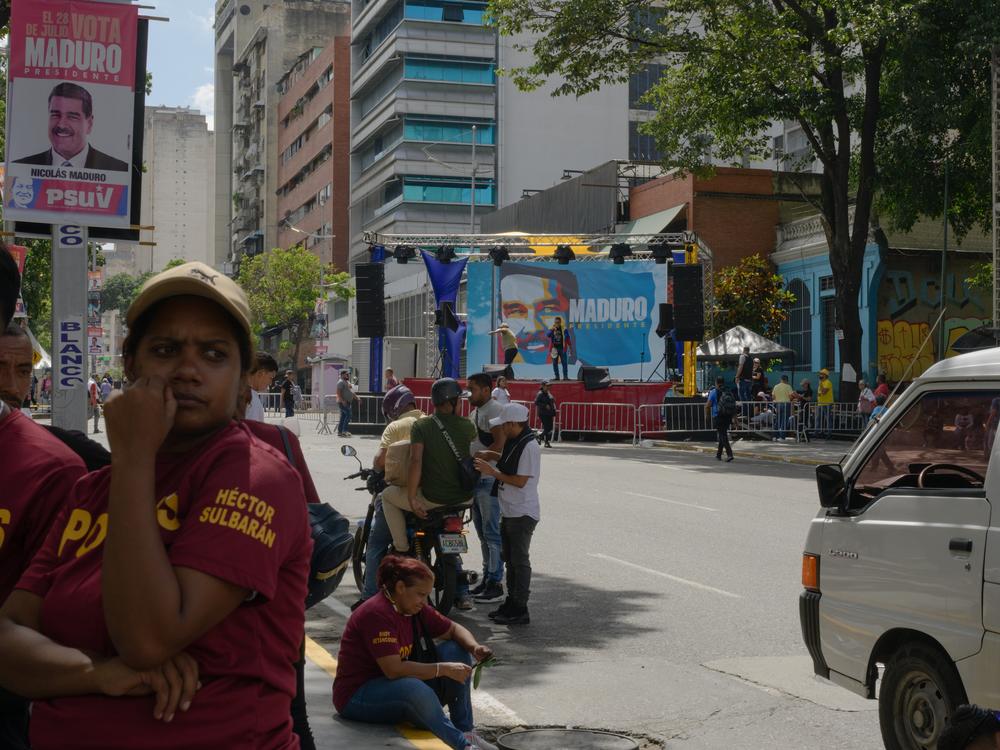Section Branding
Header Content
What to know about Venezuela's election, as Maduro faces stiff opposition
Primary Content
CARACAS, Venezuela — Venezuelans are bracing for one of their most consequential and contentious elections this Sunday, which could bring dramatic change to the South American nation.
Should the main opposition candidate, Edmundo González Urrutia, win and take an oath of office in January, it would end 12 years of authoritarian government under President Nicolás Maduro — and a quarter-century of rule by the Socialist Party founded by the late leader Hugo Chávez.
Eight otheropposition candidates are also on the ballot but none polls above 2%. Those samepolls show González with a huge lead over Maduro, who has led Venezuela into its worst economic crisis in history and nearly crushed its democracy, prompting almost 8 million Venezuelans to flee the country.
However, Maduro controls all branches of power, including the armed forces and the National Electoral Council that will count the votes. His government has flooded the mainstream media, which it controls, with propaganda and has engaged in a campaign to sabotage the opposition.
Its most brazen move was to ban popular opposition leader María Corina Machado from taking part in the election. It also placed a series of onerous requirements on the 5.5 million voting-age Venezuelans living abroad — most of whom oppose Maduro — that will prevent most of them from casting ballots on Sunday.
Even if González — who has replaced Machado on the ballot — wins, it remains unclear whether Maduro would recognize his victory and peacefully leave power.
Here are some of the key things to understand about the Venezuelan election.
When is Venezuela's presidential election?
The election is on Sunday, with polls opening at 6 a.m. and closing at 6 p.m. The date, July 28, happens to be the birthday of late President Chávez, who was Maduro's mentor.
Electoral authorities told NPR they couldn't say exactly when results would be released. In past elections, final vote tallies were given late in the night or even stretching into following days.
Who is running in the election?
Incumbent President Nicolás Maduro is running for a third six-year term. Maduro, 61, was first elected president in 2013 following the death of Chávez, who had run Venezuela since 1999 on pledges to carry out a leftist revolution. Under Maduro, Venezuela suffered an economic collapse marked by food shortages, hyperinflation and the crumbling of its vital oil industry. That led to massive street protests prompting a government crackdown that included the jailing of opposition leaders and press censorship.
Maduro won another term in 2018 in balloting widely considered a sham. Should he win on Sunday, Maduro is promising to grow the economy now that U.S. sanctions against the country’s oil industry have been relaxed. He’s also warning Venezuelans of chaos should the opposition win.
“If you don't want a bloodbath in Venezuela, a civil war brought about by the fascists, then let's strive for the biggest success, the biggest victory in the electoral history of our people," he told voters this month.
The leading opposition candidate is Edmundo González Urrutia, a 74-year-old grandfather and a retired career diplomat. Opposition leaders put him on the ballot after Machado, who easily won the opposition’s primary last year, was disqualified over unproven allegations of corruption.
The two have been campaigning together and drawing massive crowds, with the fiery Machado exhorting her supporters to vote for her replacement. González served as Venezuela's ambassador to Algeria and Argentina but quit in 2002 to work for Venezuela's political opposition. He has never held elective office and before his sudden emergence as Machado’s stand-in, he was unknown to most Venezuelans. Yet many are rallying to his side.
“We were a rich country, and it just isn’t fair that this one man [Maduro] has brought us this disaster,” María Lagos, an ER nurse, told NPR after attending an opposition rally on July 21. “That’s why I’m voting for González.”
González has been vague about what he would do as president. But he has promised to lead “a government for everyone” in which Machado would be a key player. “She’s an essential leader in the process. … She will have whatever role she desires in the government,” he told The Guardian newspaper.
What happens if opposition candidate González wins?
The main question looming over Sunday’s voting is whether, in the case of an opposition victory, Maduro will respect the results and allow for a peaceful transition of power. A key sticking point is that, should Maduro leave office he could face criminal prosecution.
The International Criminal Court is investigating his government on allegations of crimes against humanity, including torture, sexual violence and arbitrary detentions. In addition, Maduro and several members of his inner circle face U.S. indictments for drug trafficking, terrorism and other crimes. Geoff Ramsey, a Venezuela expert at the Atlantic Council think tank, says: “The reality is that Maduro is not going to give up power if he perceives that there's any real risk that he could end up in a jail cell in Miami.”
But there may be some wiggle room. Four years ago, the U.S. dropped drug-trafficking charges against a former Mexican defense secretary to foster better relations with Mexico. Likewise, the U.S. could bend a little with Maduro to promote a smooth transition of power.
“There are many, many little things you could do or signal or trade behind the scenes,” says John Feeley, a former U.S. diplomat in Latin America. “You can make it clear: ‘Yep, you're a narcotics trafficker; you ever set foot in the United States, we will arrest you.’ But you could also send emissaries to say: ‘These are several countries where you might live.’ ”
Maduro’s son, a politician also named Nicolás, told the Spanish newspaper El País: “If Edmundo wins, we will turn over power and become the opposition. That’s it.”
But even if that happens, an incoming González administration could find itself hamstrung because Maduro’s Socialist Party would continue to control all other branches of power.
What happens if Maduro stays in office?
Polls are predicting an overwhelming loss for Maduro. But if he announces victory and clings to power amid clear evidence that the opposition won, his government could face street protests from disgruntled voters.
“We all have to go out on to the streets and defend” an opposition victory, preschool teacher Gabriela Hurtado says. “If we stay at home we’ll have to go through another 20-plus years like this … and that is what we don’t want.”
The U.S. and the European Union are unlikely to recognize a fraud-marred election, which could lead to more sanctions against Venezuelan government figures. Machado, the opposition leader, is warning that six more years of Maduro could lead to another huge wave of emigration.
The opposition is counting on help from the U.S., Europe and the left-leaning presidents of neighboring Colombia and Brazil to convince Maduro to stand down should González win. To protect against fraud in an election in which Maduro has banned most independent electoral observers, the opposition will try to place poll watchers at every voting table.
“We have to count the votes. That is our challenge. Everyone knows that Edmundo González is winning by at least 30 points,” Machado told NPR while sitting in the back of an SUV on her way to a campaign rally in western Venezuela on Tuesday. “We are hours away from a day we have been waiting for 25 years.”
John Otis reported from Bogotá, Colombia; Carrie Kahn reported from Caracas and Barquisimeto, Venezuela.




